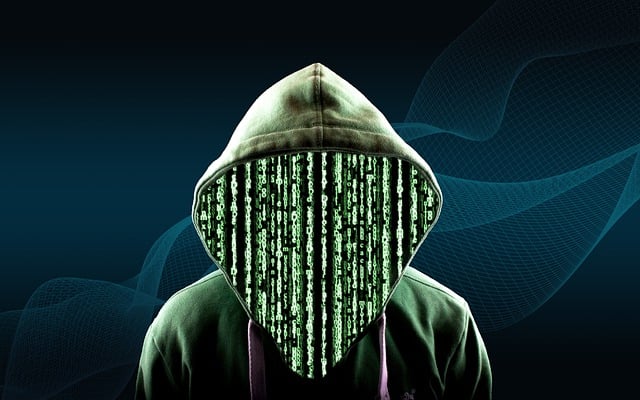Do Linux Operating Systems Really Not Need Antivirus? Here’s Why and What You Should Know

As AV-Test.org explains, Linux systems are considered among the safest in the world. It has always been infamous for these reasons due to the reason that it is an open-source based software, has fewer users, but has highly efficient permission controls. But does this mean Linux is completely safe from virus or malware? The short answer is no. Linux has many security benefits; however, it possesses certain weaknesses that you must learn to avoid to ensure security in your system.
Why Linux Is Considered More Secure Than Other Operating Systems
The Power of Open-Source
That is why people tend to trust Linux as one of the most secure operating systems – because of its open-source policy. The ability to browse the source code means that a vast number of international developers constantly monitor, analyze and optimize the code. This enables one to quickly identify areas of risks and vulnerabilities hence to fix them while with systems such as Windows it is all coded and only the programmers will know where to look at. But due to the openness of Linux, it is made more secure since a large group is involved in the identification of security threats as well as the fixing of these threats.
Fewer Targeted Attacks
Linux has an advantage of it is used by many people and at the same time it not much used by criminals. While most of the end-users and business customers utilize the windows operating system or even game console, leave alone the game boy, it is far much difficult for a mass malware to penetrate into the Linux operating system market which is more popular among servers and its users are few in number especially on the desktops. Consequently, this causes system owners to prioritize systems that are more likely to get infected thus limiting attacks to a few rather than common ones seen in linux. This doesn’t mean Linux is immune, but it does explain, why it is less targeted than Windows for example.
Linux Permissions and Privileges
Linux has a tremendously well-developed permission regime that makes it much harder for viruses to sneak through and get full access to the system. While in the Windows system most users work with full administrative rights, Linux has a clear distinction between rights for users and system rights. The root account is used for administrative purposes only while users usually run with reduced access levels; hence malware cannot gain access to the parts it does not want to access without authorized permission. This entangled security model means the impact of an attack is greatly restricted.
Do Linux Users Really Need Antivirus Software?
Common Misconceptions
Perhaps, the most stubborn myth in the Linux world has always been the notion that the OS does not succumb to malware. As much as it is true that compared to Windows, Linux enjoys relative free from threats, I must stress that this has not left the Linux operating system out of harms way. However, there always remains a problem of the so-called vulnerability can be used by the attacker, for instance, if the system is not updated often. In the same regard, Linux is experiencing a growth in their usage more prominently in servers and enterprise environments hence the increase in such attacks. While Linux is inherently more secure than other walks of operating systems, no operating system is completely hack-proof.
Comparison Chart:
| Year | Linux Vulnerabilities | Windows Vulnerabilities |
|---|---|---|
| 2010 | 12 | 35 |
| 2015 | 22 | 50 |
| 2020 | 18 | 45 |
| 2023 | 25 | 60 |
This chart can illustrate that while Linux typically has fewer vulnerabilities, the gap isn’t as wide as many users assume.
Why Antivirus Might Still Be Necessary
Although Linux has magnificent architecture, antivirus can still be quite useful especially where the Linux system interrelates with other systems. For instance, Linux machines were turned into cross-platform virus carriers that not only â€&#c2;infect  other systems, such as Windows or macOS from shared files or via networks. While Linux itself might not be the end goal, a scan for these threats protects your machine from evolving into a distribution hub for malware.
Table: Linux Defense Mechanisms vs. Antivirus Software
| Defense Mechanism | Purpose | Antivirus Equivalent |
|---|---|---|
| iptables | Firewall to filter network traffic | Real-time scanning |
| AppArmor | Application-level access control | Malware detection |
| SELinux | Mandatory access control | Behavioral analysis |
| UFW (Uncomplicated Firewall) | Easy-to-use firewall tool | Virus signature scanning |
Linux has several strong, system level protection tools such as iptables and AppArmor but these are designed against intrusion or intrusion-like activities and do not include virus scanning for known viruses. This is why antivirus software can fit in as an additional layer of security for the existing system particularly for such systems as the shared or those operating with external files and / or networks.
Real Threats Linux Users Should Be Aware Of
Rootkits, Ransomware, and Malware on Linux
In certain ways, malware affects Linux less than other operating systems but this does not mean that Linux is not vulnerable at all. In this section we discuss some of the most well-known change-oriented malware variants affecting Linux systems over the years. For instance, the Mirai botnet targeted susceptible Linux-based IoT appliances and coordinated them into a group and utilized for DDoS attacks. Further, rootkits, the malware, that let unauthorized users have full rights to a system are not rare on Linux. Another threat that Linux used to lock out from its environment is ransomware, which penetrated deep into the Linux system, including important servers, to ransom encrypted data.
Server-Level Threats
Linux stands for a large part of the server systems being used in the Internet and other computer networks around the world. Due to their high degree of Linux server use, these companies become prime targets for hackers. The security vulnerability of a Linux server can result to large scale leakage of confidential information or unauthorized access or even manipulation of core system. In such circumstances, the antivirus can act as another line of defense, look for threats it knows exist and check for suspicious activity, guaranteeing that malware goes unnoticed.
Most corporate server administrators will require antivirus antimalware solutions for Linux such as ClamAV or Sophos for Linux as necessary tools in environments containing sensitive data flow or in environments through which users of both Linux and other OSs pass. Reliability: In terms of what can spread from Linux servers to other systems, viruses/malware are rather possible which only asserts to the importance of having these ‘secure’ as possible for the greater good of protecting the networks at a whole.
Best Practices for Securing Your Linux System

Keep Your System Updated
Updating system and applying the security patches is one of the easiest but one of the most efficient ways of securing the Linux system. Programmers are always discover and eliminating issues with Linux kernel and software distributions. When you constantly update your system you avoid exposed vulnerabilities which can be exploited by malicious applications or users. Most of the Linux distributions will let you schedule your updates or notify you when a new update exists so your system will be protected against the newest threats.
Enable Built-In Security Tools
Linux in particular has several integral security applications and utilities that can help in increasing the level of your systems security. Good examples are: SELinux –Security-Enhanced Linux that offers mandatory access control features thus, if an application is penetrated it cannot install a right of entry to the other components of the system. UFW (Uncomplicated Firewall) enables one to set up firewall which denies unlawful access, whereas, fail2ban will shield your system from other attacks in as much as login tries through the Internet are in excess of so many instances.
Using and configuring these built-in tools will allow you to have a complex protection wall for the Linux system, and you won’t have to rely that much on external programs.
Consider Installing a Lightweight Antivirus
Although Linux systems are comparatively more secure than others from the malware point of view, some specific application domains might find it more appropriate to install a simple and light-weighted antivirus system. There are tools like ClamAV, they scan, and have the basic functionalities of identifying malware and it is useful if you are handling files from persons or sources you don’t know or can’t trust. If dealing with other OSs, like Windows, to some extent antivirus will monitor shared files and allow Linux not to become a host for cross-platform viruses.
Sometimes, it is not required for all the Linux users to install the antivirus, but in certain situations like shared servers or business organizations it will be more helpful as it wouldn’t take much space on the System’s memory.
Common Misconceptions About Linux Security
Is Linux Invulnerable?
One of the fears that ordinary users have is that Linux has some sort of immunity to viruses and malware programs. This idea might have arisen due to the fact that Linux is generally considered more secure than other operating systems say because it is open code and has proper permission hierarchies. However this view is deceptive. Of course, Linux has pre-installed features that minimize vulnerability to the malware, but it is not a completely safe operating system. There are still ways in which a vulnerability can be taken into exploit and even attackers continue to innovate their attack techniques; the best practices like updates etc. are not followed diligently.
It is at this juncture that communities such as Wired’s realization that there is no operating system in the world that can truly be considered devoid of any vulnerability come into play; Linux users must be weary and continue on the offense on identifying vulnerabilities in their systems.
The Rise of Malware Targeting Linux
With more and more organizations moving to Linux, especially in the enterprise domain and particularly when considering cloud computing solutions there has been an upsurge of more unique malware types for the operating system. Linux servers and containers have recently become the most sought after by hackers since they are used to initiate an attack and gain profit or cause damage.
New years have witnessed coming up of many other threats such as ransomware and botnets that have targeted the Linux systems. For instance the RansomEXX has been documented to affect Linux servers owing to their growing use in infrastructure support systems. However, as the use of Linux and other forms of Linux increases in the future awarenesses that Linux operating systems are not immune to security threats hence the need for security will need to be created.
Linux vs. Windows: A Security Comparison
Security Features of Linux
There are many basic components of security in Linux which make lot of people believe that Linux is much more secure than Windows OS.
- User Permissions: Linux uses the multi-user permission system which enables users to run programs only with limited permission. This means that even if an attacker gains control of the user account in question, they are likely to face a significantly high level of difficulty when trying to get access into areas of the system that are most sensitive, or perform some action that is considered to be destructive.
- Sandboxing: Most Linux applications allow them to be executed in a confined mode, that is they are not allowed access to other parts of the system. This containment reduces the chance of malware to be run because its pertaining to within the application means that it cannot access other programs or deep core system functions.
- SELinux and AppArmor: These MAC offer other measures of security as it regulates all the interactions between the applications or processes of the system as well as countering risks of unauthorized access or intrusions.
- Regular Updates: One of the Linux’s advantages is that it is open source, so it is easier to find and fix the problems, while ordinary users can help with the security upgrades.
These features make a strong security environment and contribute to the exclusion of breaking into the virus and unauthorized access.
Security Gaps in Windows
Even though a lot of progress has been made on development on Windows security system it still has some flaws that make it an easy target for the malware.
- Default Administrator Privileges: Many Windows users run with administrative rights, and this means that malware will be able to freely roam the system. Such a setup may have a very serious consequence that a user can run an unwanted program by accident.
- Frequent Target for Cybercriminals: Due to its dominance in the consumer and business markets, Windows is often the primary target for attackers. For instance, the WannaCry ransomware attack in 2017 exploited vulnerabilities in Windows, infecting hundreds of thousands of systems globally and causing billions in damages.
- Complexity of the Operating System: Windows has hundreds of features and a decade worth of code – many of which can be security vulnerabilities. It becomes difficult to protect every aspect due to the large attack surface for instance the Stuxnet worm was able to compromise industrial control systems through using several windows vulnerabilities.
Each mentioned OS has its strengths and weaknesses; still, Linux is way more protected from malware and other threats on the internet because of the inherent security features and frequent reports from the global community.
What to Look for in Linux Antivirus Software
Lightweight vs. Comprehensive Solutions
Just as in the Windows platform, the decisions about the antivirus for Linux depend on the priorities of the users and whether they would prefer lightweight software or the solution that would include all the necessary functions for protection.
- Lightweight Solutions: Such options as ClamAV are as simple as possible, their main function is to detect viruses and scan for them without utilizing much system resources. The great benefit is that such solutions are perfect and its maintenance needed if the user is focused on performance and does not need extra functions for protection. This version of the antivirus is most beneficial to servers/older computers where resource management is paramount.
- Comprehensive Solutions: On the other hand, more extensive antivirus software often comes with a package of other tools including the possibility of real-time protection, web content filterization and even the possibility of the firewall integration. Sophos or ESET NOD32 offer more extensive range of security solutions one is not only a virus but also phishing attack and much more. Despite the fact that these solutions take more resources to run, they provide a more effective protection solution and hence appropriate for persons who work with sensitive information and users in dangerous environments.
Therefore, the decision over the use of either lightweight or comprehensive antivirus will greatly depend on the needs of the intended user, his or her usage pattern and the tolerance he or she has towards risks.
Free vs. Paid Antivirus for Linux

One of the most crucial factors every user wants to pick between free and paid antivirus software with its perks and drawbacks in Linux.
- Free Antivirus Options: Although there are free solutions such ClamAV and Chkrootkit, they perform basic scans and helpful for those who does not have the financial capability to go for the other solutions that were listed above. Free software is scarcely costly and does not involve a subscription; but then these tools are not as likely to update or provide robust backup and support, exposing users to newer forms of attacks. To that also, free antivirus tools lack some of the extra options like the real-time protection and the pre-scheduled scanning.
- Paid Antivirus Solutions: As a rule, paid antivirus programs have a wider list of options, such as real-time threats scanning, regular updates, free customer assistance, and better protection against malware. The investment to go for the paid solution is likely to bring more security, particularly to businesspersons or uses who have sensitive information that needs to be protected. Nevertheless, the continuous expense might not be reasonable to all users when they are occasional or if they uphold security measures and guidelines tightly.
In regard to Linux, one has to define whether to use the antivirus that is free of charge or to pay for the software and its performance; this is exactly at the intersection of interests, budget, and security level. To have an optimum security, users are advised to weigh the advantages, strength as well as the disadvantage and weakness of the options to choose from.
H2: Conclusion: Should You Install Antivirus on Linux?
The final decision of whether or not to have antivirus software in a Linux system often lies in the user’s dependencies and the surrounds by which the OS is operated. Standard users performing web browsing, document editing and occasional file sharing might use Linux with its integrated security measures and safe practices as the sole means of protection. But for the server administrators or users who work in environments where information security is critical antivirus propositions can provide an extra layer of security precautions against possible risks.
In any case a multilayered security approach should be used although it may not be popular among software developers. This involves always updating the system, adopting the default firewall and SELinux securities, and always involving safe browsing. In conjunction with these approaches, if needed, the consumers can develop a strong protection shield against malware and other cyber hazards, such as the antivirus program.
Hence with Linux being highly secure then most other Operating Systems, the user needs to be careful and be part of keeping the systems secure. Every user has to consider his or her particular circumstances and come to right decisions to protect their systems.
FAQs:
1. Do Linux operating systems really not need antivirus software?
Although Linux is regarded as more secure than other systems because of its open source nature and its fine-grained permission systems the system is not invulnerable to viruses. Whether you have Antivirus depends on whether you are operating Linux for personal station or in a server space.
2. What makes Linux more secure than Windows?
Another advantage is Linux kernel is an open-source with active community security checklists and fast fixes for the discovered holes. It also has a limited permission, thus it is challenging for the malware to have access to sensitive parts of the system than in Windows.
3. Are there any types of malware that target Linux systems?
Yes there are, there are rootkits, ransomware and viruses that can infect Linux systems. For instance, the Mirai botnet got acquainted with newest vulnerabilities in Linux-based devices and a ransomware named RansomEXX attacked Linux servers.
4. Can Linux users get infected with viruses?
Yes, there are, Linux users can get infected viruses and other kinds of malware if they perform dangerous actions like download from untrusted sites or ignore updates. Now, it is necessary to obey fundamental rules of security, so-called security hygiene.
5. Should I use antivirus software on my Linux machine?
It depends on your usage. If you are a regular user who uses Linux for web surfing, basic system-related tasks, preloaded defenses may be enough. However, servers or environments that deal with important data it is possible to use antivirus software as an added security measure.
Loading newsletter form...






